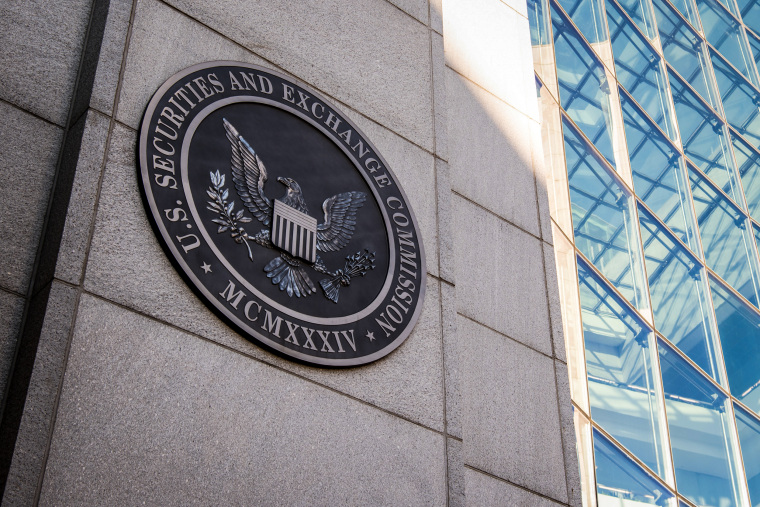WASHINGTON — Conservative Supreme Court justices appeared sympathetic Wednesday to a broad legal attack on the Securities and Exchange Commission in a case that could curb the power of federal agencies.
The case is one of three on the Supreme Court's docket considering what has been broadly described as an attack on the administrative state led by conservative groups and business interests. The court, which has a 6-3 conservative majority, has frequently been supportive of such efforts.
The challenge focuses on the power the SEC has to enforce securities laws, including those prohibiting insider trading. The SEC uses in-house proceedings presided over by administrative law judges or sues in federal court. In both sets of proceedings, it can seek financial penalties.
Those subject to the in-house proceedings have bristled, saying they violate their rights and give the SEC too much power by essentially creating a home-court advantage.
During Wednesday's argument, several conservative justices appeared to agree that people facing financial penalties should have the opportunity to have their cases adjudicated in courts with juries.
Such a ruling could also affect many other federal agencies that use administrative law judges, although the court could seek to limit its ruling to securities cases or leave the major legal questions for another day.
Conservative Chief Justice John Roberts highlighted the growing power of federal agencies and the use of in-house judges over the decades.
"The extent of impact of government agencies on daily life today is enormously more significant than it was 50 years ago," he said.
Justice Samuel Alito, another conservative, said the SEC's ability to choose which cases go to court appeared to be a "pretty patent evasion" of the Constitution's Seventh Amendment right to jury trials in civil cases.
Justice Brett Kavanaugh, another conservative, said "it would seem odd from a constitutional perspective" that a lawsuit filed by the government does not trigger a right to a jury while a case brought by one private party against another does.
Likewise, Justice Neil Gorsuch spoke of the importance of jury trials in the justice system.
"We’d agree that the right to trial by jury, whether it’s criminal or civil, is a very important foundational freedom in American society and a check on all branches of government, wouldn’t we?" he said.
The court's three liberal justices appeared more sympathetic to the government's arguments in defense of the current system, noting that the court upheld it in a case decided half a century ago.
The reason it has not come up since then is that "nobody has had, you know, the chutzpah," Justice Elena Kagan said.
The case concerns hedge fund manager George Jarkesy, who brought the legal challenge after he faced SEC claims that he violated securities laws by making misstatements and omitting relevant information in communications with investors while he was overseeing two hedge funds.
After an in-house proceeding in 2014, Jarkesy and his firm were ordered to pay a $300,000 penalty, and he was barred from certain roles in the securities industry. The firm was also ordered to return nearly $685,000 in what the SEC considered "illicit gains."
Jarkesy's legal crusade has the backing of billionaires Elon Musk and Mark Cuban.
The case raises three weighty constitutional questions that could weaken the SEC's powers, at least when it comes to the in-house proceedings.
One is whether the adjudication of cases by the in-house judges violates the right to trial by jury, a point the justices repeatedly addressed during the argument.
Another is whether the SEC has the authority to decide whether cases can proceed in-house or in court.
The third is whether the SEC judges are improperly protected from losing their jobs because they can be removed only "for cause."
A three-judge panel of the New Orleans-based 5th U.S. Circuit Court of Appeals ruled against the agency on all three counts, prompting the SEC to ask the Supreme Court to intervene.
In defending the current process, Solicitor General Elizabeth Prelogar said Congress had the authority to allow the SEC to enforce securities laws using in-house judges.
When the court heard the first of its administrative agency cases in October, it did not appear receptive when it considered a bid to weaken the Consumer Financial Protection Bureau.
In January, the court will weigh whether to overturn a landmark ruling from 1984 that gave federal agencies leeway to interpret the law when a statute is not clear.

